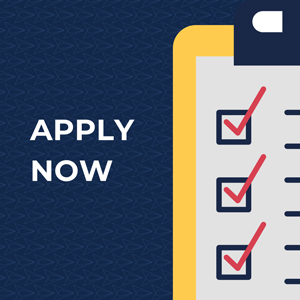
Psychology Major at Lasell
The B.S. in Psychology degree program emphasizes how individuals think, feel, and behave within personal, social, cultural, and societal contexts.
Students learn intervention techniques and counseling skills appropriate for helping individuals. They learn how behavior patterns develop, and about the connection between an individuals' neurobiological, interpersonal, cultural, community, and societal processes. Research and statistics courses familiarize students with basic concepts in experimental design and analysis.
The program prepares students for employment in a wide variety of social service or therapeutic settings in administration, education, child welfare settings, research and human service agencies in positions such as a counselor, personnel interviewer, case manager, market researcher, test administrator, research assistant, or rehabilitation worker.
Students also pursue graduate programs in areas such as clinical or counseling psychology, school psychology, organizational psychology, social work, hospital administration, public health, and criminal justice.
Lasell also offers a Psychology minor.
Program Features
- The Case Management & Counseling course provides first-year students the opportunity to learn first-hand how to assess, interview, and communicate with clients.
- First-year students participate in at least one service-learning or social justice project.
- During their first one-semester internship, students work in a community agency that provides services or a therapeutic environment for its clients.
- A two-semester, senior year capstone experience provides an in-depth internship placement accompanied by concurrent related seminars.
What You'll Learn
From your first day, you’ll take courses in your major and advance towards graduation with a yearly plan. Not sure what classes to take? We’ll help you create the perfect plan.
View our
4 Year Plan for a year-by-year breakdown of potential courses you can take to complete your Psychology major in four years.
Sample Psychology Courses
| Course Code |
Course Title |
Credits |
| Core Courses |
| HS101 |
Human Services: Systems & Skills |
3 |
| HS210 |
Case Management & Counseling |
3 |
| HS215 |
Foundation Internship |
3 |
| HS217 |
Foundations of Ethical Fieldwork |
3 |
| HS415 |
Advanced Internship I |
3 |
| HS417 |
Field Intervention Strategies |
3 |
| HS425 |
Advanced Internship II |
3 |
| HS427 |
Systems & Organizational Change |
3 |
| MATH208 |
Statistics |
3 |
| PSYC101 |
Psychological Perspectives (KP) |
3 |
| PSYC220 |
Social Psychology |
3 |
| PSYC318 |
Abnormal Psychology |
3 |
| SOC101 |
Sociological Imagination (KP) |
3 |
|
Lasell's Connected Learning complements traditional approaches with active learning experiences by doing internships, service learning, and challenging projects in and out of the classroom.
Classes & Projects
- The Case Management & Counseling course provides first-year students the opportunity to dive right into the world of counselors and case managers by learning first hand how to assess, interview, and communicate with clients.
- Students conduct and collaborate on research projects to publish in scholarly journals and present at national industry conferences, and learn to write grant proposals to secure funding for advocacy and academic endeavors.
- Faculty provide students the opportunity to conduct research and present at conferences with them, such as presenting at the American Psychological Association, Eastern Psychological Association, and more.
- The Persuading People, Preserving Planet class partnered with Lasell's Environmental Studies program to research why people tend not to recycle their Dunkin Donuts cups and bags. The class explored current environmental issues from a scientific perspective with an environmental scientist while learning about the psychological techniques of persuasion and social influence. They then implemented the findings of their research and designed new bags, which were then surveyed to measure effectiveness.
Partnerships
Lasell has a partnership with Regis College which gives students the opportunity to start taking graduate level courses at no additional cost. The credits can be applied to the undergraduate degree and may carry over to the graduate level. This program provides graduate level experience and the opportunity to continue graduate work at Regis - the GRE requirement and application fee may be waived.
Internship Sequence
Students complete a three-semester internship sequence which allows them to link theory with practice while networking and building their resumes. Through a set of structured experiences, students develop the knowledge and skills necessary to evaluate and counsel individuals, groups, organizations, and communities.
 |
Lori Rosenthal, Ph.D.
Dean, School of Social Sciences, Humanities & Education; Professor of Psychology
Areas of Expertise: psychological perspectives; personality psychology; social psychology
|
 |
Charlotte Frazier, Ph.D.
Associate Professor of Psychology
|
 |
Betsy Leondar-Wright, Ph.D.
Assistant Professor of Sociology
Areas of Expertise: race and ethnicity; social movements; sociology
|
 |
Tessa LeRoux, Ph.D
Professor of Sociology
Areas of Expertise: gender and family studies; sociology
|
 |
James William Lincoln, Ph.D.
Assistant Professor of Philosophy, The Nancy Lawson Donahue '89 Professor of Ethics, and Coordinator of the Junior Ethics Program
Areas of Expertise: ethics, social philosophy, and epistemology
|
 |
Melissa Macdonald, Ph.D.
Associate Professor of Sociology
Areas of Expertise: DEI, social justice, anti-racism, and social inequality
|
 |
Marsha Mirkin, Ph.D.
Professor of Psychology
Areas of Expertise: family therapy; women's studies; adolescent psychotherapy
|
 |
Pamela Naab, Ph.D.
Assistant Professor of Psychology
Areas of Expertise: counseling psychology,health psychology, play & art therapy, group therapy, and psychological testing
|
 |
James Ostrow, Ph.D.
Professor Emeritus, Sociology
Areas of Expertise: intersection of social theory, continental philosophy, and American pragmatist philosophy; sociological theory; qualitative research; educational philosophy; educational research methods
|
 |
Jesse Tauriac, Ph.D.
Associate Professor of Psychology; Director of the Donahue Institute for Ethics, Diversity, and Inclusion
Areas of Expertise: transformative education; cultural competence; clinical psychology
|
 |
Zane Zheng, Ph.D.
Associate Professor of Psychology; Chair of Academic Research
Areas of Expertise: cognitive neuroscience; speech perception; biological basis of behavior; psychological perspectives
|
Learning Outcomes
- Use psychological theories to explain human behavior on individual, small groups, and societal levels, and demonstrate knowledge of professional codes of ethics.
- Professional and effectively interact with clients in social service settings.
- Engage in action to raise awareness and advocate for change particularly in the areas of social justice that influence social and economic disparities.
- Demonstrate aptitude with scientific reasoning, research methodology, statistics, and developing a substantiated argument.
- Communicate in professional psychological writing style and be able to write a preliminary grant and deliver a professional presentation.
For a complete list of courses and Learrning outcomes, view the Academic Catalog >>
 Accelerated Master's Program Accelerated Master's Program
Save time and money — earn your graduate degree in just 1 year with the Accelerated Master's program. Learn more and how to apply >>
|
Career Success
Students in the Psychology degree program are prepared to seek employment in a wide variety of social service or therapeutic settings in administration, education, child welfare settings, research, and human service agencies.
Students are also prepared for graduate programs in areas such as clinical or counseling psychology, school psychology, organizational psychology, social work, hospital administration, public health, and criminal justice.
Our students have interned with:
- American Red Cross
- Bournewood Psychiatric Hospital
- Brandon Residential Treatment Center
- Brookline Infant-Toddler Center
- Charles River Center
- Chetwynde Health and Rehabilitation Center
- Germaine Lawrence School
- Homes for Families
- John Barry Boys & Girls Club
- Lasell Village
- March of Dimes
- Massachusetts Department of Children & Families
- Mass Department of Health & Human Services - Early Intervention Division
- May InstituteMiddlesex Juvenile Court
- Newton Public Schools
- Riverside Community Care
- The Second Step
- US Autism & Asperger Association
- Walker School
Our alumni work for:
- Boys and Girls Club
- Harvard University
- The Red Cross
- New England Center for Children
- VA Hospital
Request more information about the Psychology major:
Loading...


![]()












 Accelerated Master's Program
Accelerated Master's Program


